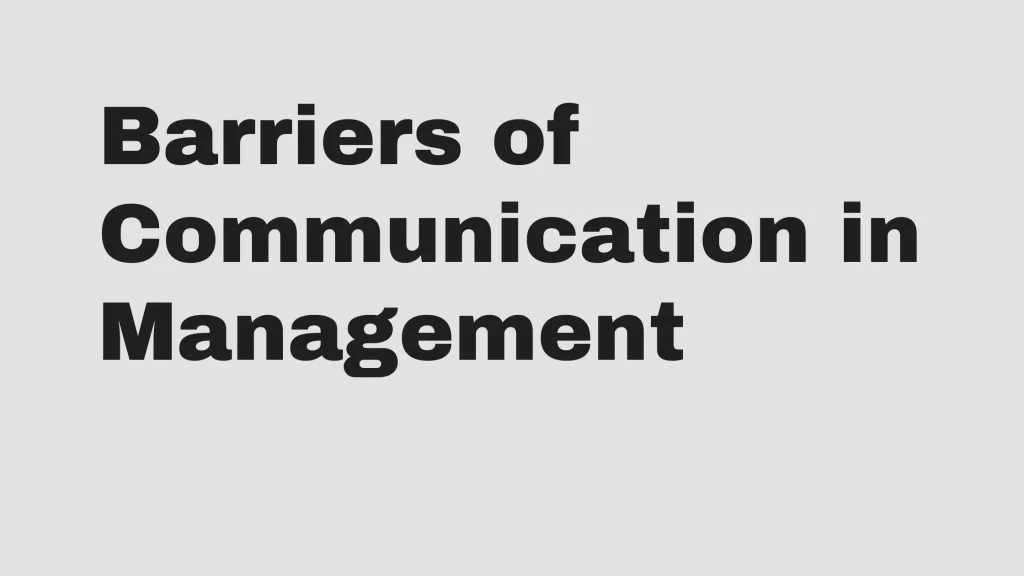Personality barriers to communication are internal blocks that stem from an individual’s unique characteristics and traits, which can hinder the flow of conversation and mutual understanding.
Everyone has a distinct personality, a specific way of thinking, feeling, and interacting with others. These personalities shape how we express ourselves and how we interpret others’ words and actions. Sometimes, certain traits can become barriers, making it challenging for people to exchange ideas and feelings effectively.
For instance, someone with an introverted or shy personality might struggle to speak up in group settings, not because they have nothing to say but because their natural disposition makes it uncomfortable for them to share the spotlight. On the other hand, extroverted individuals may dominate conversations, which can make it hard for them to listen and give others space to talk. These tendencies do not just influence social interactions but can also impact professional environments, where clear and balanced communication is crucial.
Moreover, some personalities may have difficulty handling feedback or criticism, whether due to a sensitive nature or a defensive stance.
Contents
Understanding Personality Barriers to Communication
When we think of communication barriers, we often focus on external factors like language barriers or noise interference. However, personality barriers can be just as significant in hindering effective communication.
Personality barriers refer to the challenges that arise due to individual differences in personalities, making it difficult for people to understand and connect.

Our personalities influence the way we perceive the world, interpret information, and express ourselves. When we communicate with others, these differences can lead to misunderstandings, conflicts, and a breakdown in effective communication. Recognizing and understanding these barriers is the first step towards improving our communication skills and building stronger relationships.
Types of Personality Barriers
Ego-centricity
One common personality barrier that hinders effective communication is ego-centricity. An ego-centric mindset occurs when individuals are primarily focused on themselves, their own needs, and their perspectives. This can hinder communication because it prevents individuals from truly listening and understanding others.
To overcome ego-centricity in conversations, it is important to cultivate a mindset of empathy and active listening. By shifting the focus from ourselves to the other person, we can create an environment that fosters open and meaningful communication. It is also helpful to practice self-awareness and recognize when our ego-centric tendencies might be getting in the way of effective communication.
Defensive Attitudes
Defensive attitudes are another common personality barrier that can create communication challenges. When individuals feel attacked or criticized, they may respond defensively, shutting down the conversation and preventing any meaningful exchange of ideas.
To foster open and non-defensive dialogue, it is important to create a safe and supportive environment. This can be achieved by using “I” statements instead of “you” statements, focusing on the issue rather than attacking the person, and actively listening to understand the other person’s perspective. By creating a space that encourages open and honest communication, we can break down the barriers caused by defensive attitudes.
Lack of Empathy
Empathy plays a crucial role in effective communication. It allows us to understand and connect with others on a deeper level, bridging the gap between differing perspectives. However, a lack of empathy can create significant barriers to communication.
Developing empathy skills requires practice and a genuine desire to understand others. It involves actively listening, putting ourselves in the other person’s shoes, and validating their feelings and experiences. By consciously working on developing empathy, we can overcome the barriers created by a lack of understanding and build stronger, more meaningful connections.
Overcoming Personality Barriers: Is It Possible?
Overcoming personality barriers to communication is not only possible but also essential for building stronger relationships both personally and professionally. The key lies in recognizing that our communication styles, often rooted in our personality traits, can and should be adaptable. Here’s how we can work towards breaking down these barriers:

Self-awareness
It begins with self-reflection. Understanding your communication style is crucial. Are you someone who tends to talk over others, or do you hold back too much? Recognizing your patterns helps you to adjust them.
Active Listening
Active listening is a powerful tool for breaking down barriers caused by personality differences. It involves fully focusing on the speaker, maintaining eye contact, and responding with verbal and non-verbal cues to show understanding and engagement.
To improve active listening skills, it is important to eliminate distractions, practice patience, and avoid interrupting. Reflecting on what the speaker said and asking clarifying questions can also demonstrate active listening and foster clearer communication.
Feedback and Open Dialogue
Encourage and be open to feedback. It might be uncomfortable at times, but it’s a powerful way to learn about how others perceive your communication style and what might be hindering the communication flow.
Adaptability
Be willing to adjust your approach. Different situations and people call for different styles of communication. Flexibility can help bridge the gap between differing personalities.
Skill Development
Communication is a skill that can be improved with practice. Workshops, seminars, and books on communication can provide strategies to enhance your ability to express yourself and understand others.
Professional Help
Sometimes, personality barriers are deeply rooted and may benefit from professional guidance, such as coaching or therapy. This can be particularly useful if communication issues are causing significant distress or conflict in your life.
Overcoming personality barriers doesn’t mean changing who you are; it’s about developing a versatile communication style that respects both your personality and the personalities of those around you. With conscious effort and a willingness to grow, breaking through these barriers is not just a possibility but a pathway to more meaningful and effective interactions.
Personal Barriers to Communication examples
Here are several examples of how personality traits can become barriers:
Introversion
Introverts may struggle to speak up in group discussions or may prefer to listen rather than engage, which can sometimes be misinterpreted as disinterest or lack of knowledge.
Extroversion
An extroverted person might dominate conversations and inadvertently overlook giving others a chance to express their thoughts, leading to a one-sided exchange.
Perfectionism
Perfectionists might overanalyse their communication or expect flawless exchanges, causing delays in response or undue stress that hampers fluid conversation.
Impulsiveness
Impulsive individuals may interrupt others or make snap judgments without fully listening, which can lead to misunderstandings or conflict.

Aggressiveness
Aggressive communicators can be perceived as confrontational or intimidating, which may shut down open dialogue and create a hostile environment.
Passiveness
Someone with a passive communication style may not voice their needs or opinions, resulting in a lack of contribution to the conversation and the potential for their needs to be overlooked.
Over-sensitivity
Highly sensitive people might take casual remarks personally, leading to hurt feelings or a defensive posture that can derail an otherwise healthy conversation.
Competitiveness
A competitive person might turn every discussion into a debate they feel they must win rather than a collaborative exchange of ideas.
Indecisiveness
Individuals who have trouble making decisions can slow down communication progress, especially in discussions that require a timely consensus or action.
Cynicism
A cynical attitude can lead to negative assumptions about others’ intentions, creating a barrier to open and trusting communication.
Social Anxiety
People with social anxiety may avoid communication altogether, which prevents them from forming or maintaining relationships.
Addressing these personality barriers typically involves a level of self-awareness and a willingness to adapt one’s communication style. With effort and sometimes professional help, individuals can learn to navigate these barriers for more effective and rewarding interactions.
Boko Ducky has over 10 years of experience in helping individuals and organizations improve their communication skills.



